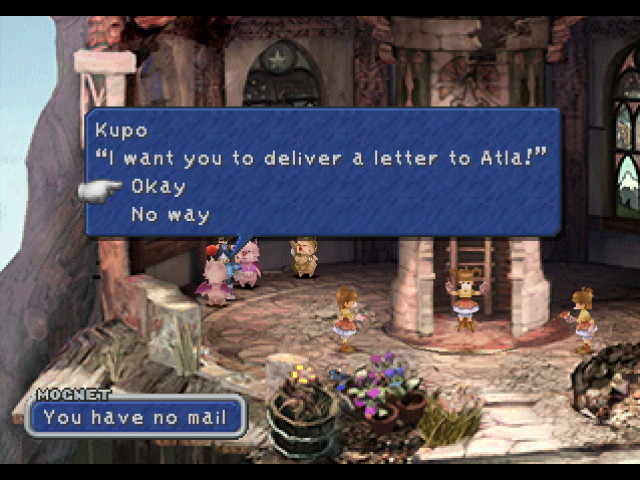Last week I wrote about using simulation videogames inside the classroom as a way of adding interactive and enjoyable activities that make real use of the language.
What is key about simulations is that they try to imitate actual processes of the world such as daily life, evolution or business management, thus providing a world that is familiar to the people playing.
 |
| Final Fantasy IX |
I would like now to steer the boat in other direction, heading fantasy. Story-based teaching has been around for quite a long time and is said to be a good way of establishing relations between different topics through a single text. Reading a story (or maybe listening to it), doing role-play, making up an alternative ending, among others, are all activities that have the special taste of something that is not only a boring exercise, but an activity with several objectives, one of which is to learn English, but also to entertain, to foster creativity, engage the children in the habit of reading, etc.
 |
| Pokémon Emerald |
The videogame parallel to stories are RPGs, i.e. Role-Playing Games. These are games that put the player in the shoes of a character, or a group of characters, leading his (or their) way through a whole story. They tend to rely on written dialogue and its comprehension is vital to keep the story going, since players are requested to do missions, carry things from town to town, talk to different people, gather information, and many things more depending on the specific game that is being used.
 |
| Eragon |
The same as with stories, we have to be very careful as regards what game we choose for our students. We could say that so as to use a RPG inside the classroom, two things are to be considered when choosing: the simplicity to which the game is kept and how much time the use of it will require. Of course that beating the game would probably take up all the lesson time we have during a whole month. The idea is, though, that playing the game is something to be done at home and during lessons we use what learners have experienced as material for learning, we check their progress and solve as a group the difficulties that arise (which I guess in 90% of the times will involve language difficulties, easy to turn into triggers for teaching, because of the nature of these games).
It may sound a little far-fetched but I think that this tool could be, besides useful, really innovative - a property that is always hard to achieve when it comes to teaching the same old topics once again.




I would love to play Street fighter during our lessons! :)
ResponderEliminar